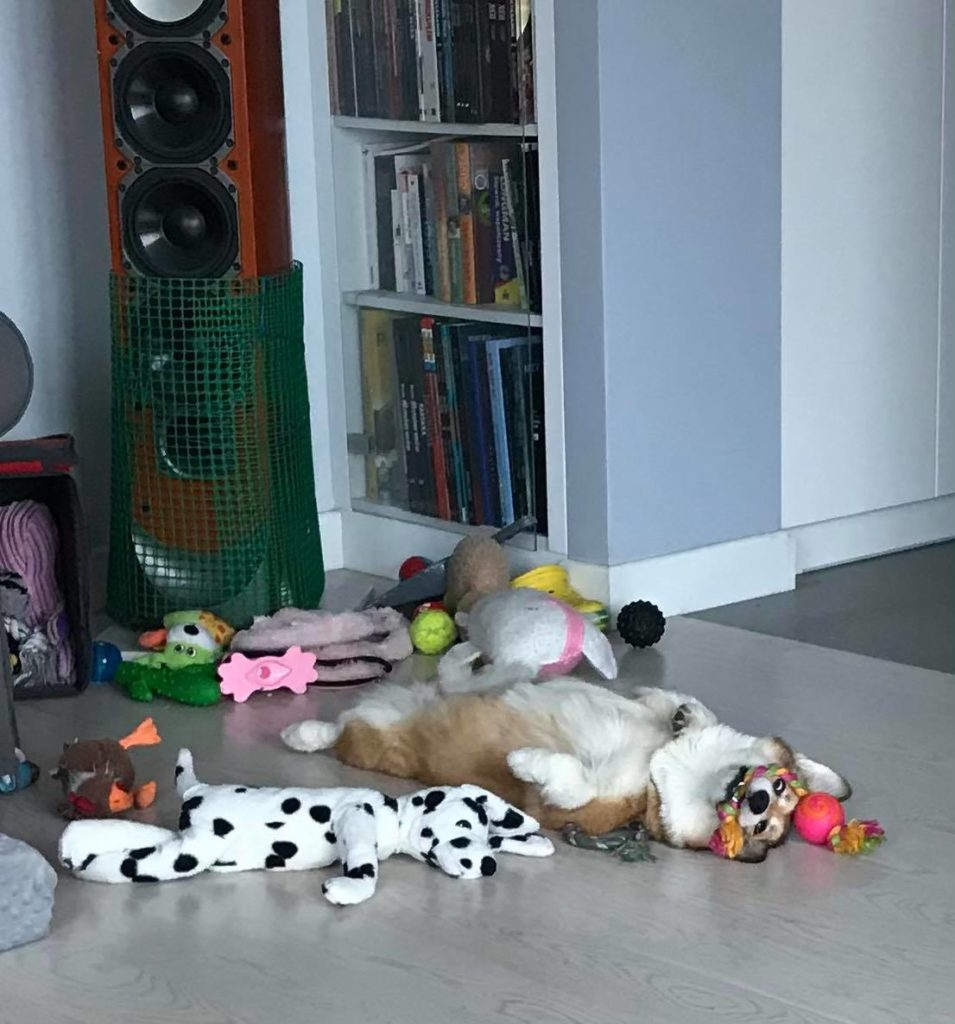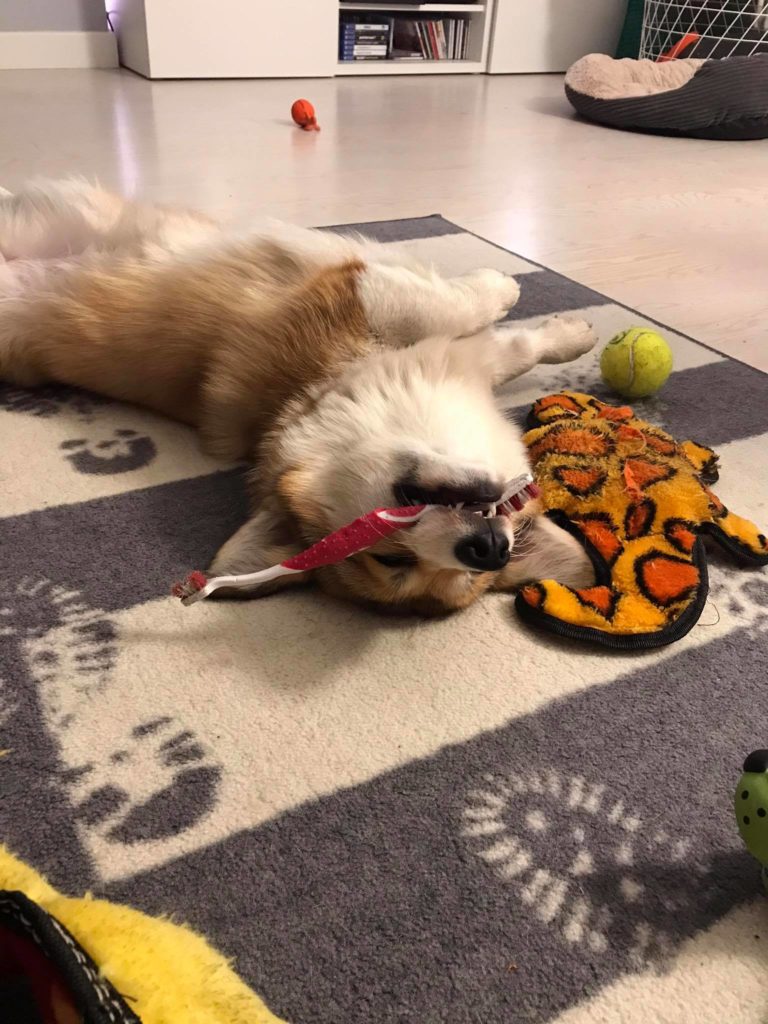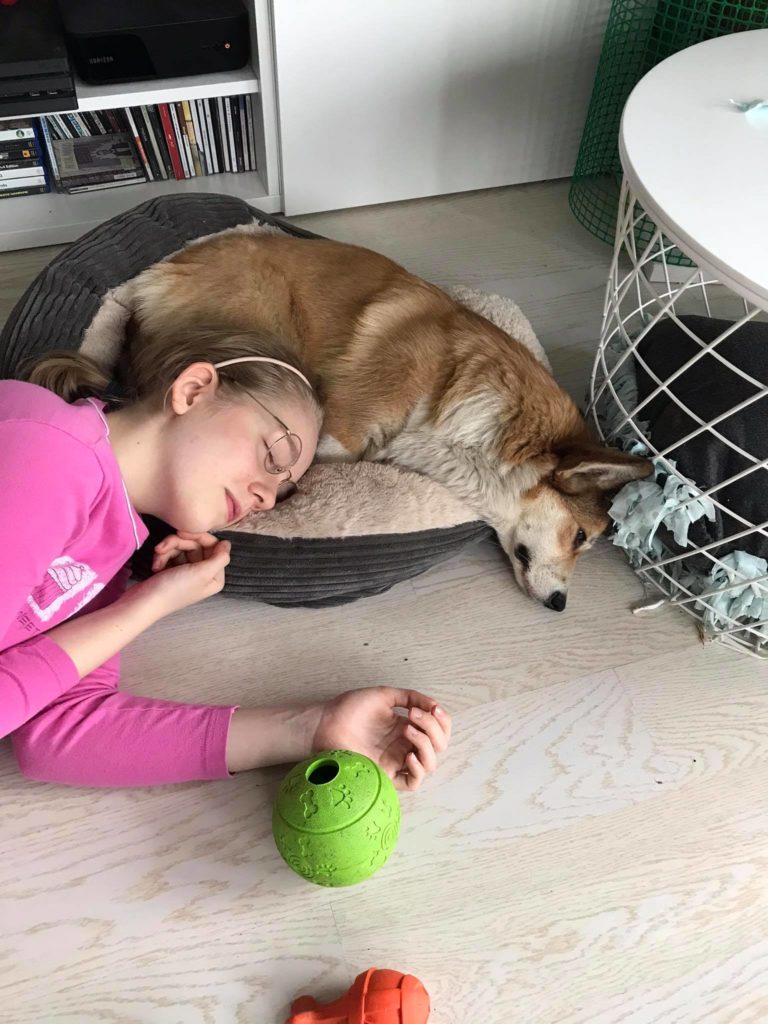Proper socialization is probably the most important “training” you’ll ever do with your puppy. New puppy owners have a small chance of properly socializing their puppy, and the things a puppy experiences in such a short time will have an impact on the dog for the rest of his life!
Fortunately, socialization is not difficult and most dog owners socialize their pets without even realizing what they are doing.
Purpose of the socialization of puppies
Most people think that socialization means having fun and interacting with many other dogs, but it is not! “Proper socialization of puppies” is about getting a puppy used to new environments: sights, smells, sounds, people and situations. Socialization is very important to your dog’s health and well-being. A poorly socialized dog is a threat to others and to himself. Incomplete or inadequate socialization during the [socialization period mentioned above] may increase the risk of behavioral problems later in life, including fear, avoidance and / or aggression … Behavioral problems, not infectious diseases, are the leading cause of death in dogs under three years of age. Needless to say, it is important during the first few months of a dog’s life to ensure a comfortable life by properly socializing your puppy with the world around him.
What does proper socialization look like
When introducing your puppy to new things, you always want their experiences to be positive. This could mean using treats, praise, affection, or play to reward your puppy for calmly engaging in new things. Socialization does not always require a puppy to interact with something. For example, your puppy doesn’t need to greet or play with every stranger or dog they meet. However, she MUST behave appropriately with strangers and dogs. In many ways, socialization is also about training a puppy how he should interact with the world. When you socialize your puppy, it’s important to think about the associations you build and what behaviors will develop from them.
How to civilize a puppy
All puppies experience a critical period of socialization in the first three to four months that will form the basis of their emotional life! As your puppy moves through the stages of his life, his socialization needs change.
0-9 weeks
For the first two months of life, a puppy continues to be with its mother, learning to socialize with its siblings and learning new skills that will shape its early mental development. Proper socialization during this period is crucial for your puppy as his brain is still at its earliest and most vulnerable stage of development! That’s why most reputable breeders, vets, and almost all dog clubs around the world recommend not separating a puppy from their mother or siblings until they’re eight weeks old! This gives you enough time for your little one to develop and learn their first, most important life skills. Separating a puppy from his family by the age of 6 weeks can cause irreversible psychological damage to the dog that can last for the rest of his life. A good breeder will do their best to take advantage of this vulnerable period by socializing their puppies with all sorts of things while they are under the care of the breeder. Programs like Early Neurological Stimulation (ENS) are just one of many puppy rearing techniques reputable breeders use to ensure their puppies are successful in their future homes.

9-20 weeks
You brought your puppy home and the socialization responsibilities are now yours! Unfortunately your puppy will enter his first period of fear around 10-11 weeks of age. Your puppy will start to respond as a warning, so it is extremely important that any interaction with your puppy is fun and positive. While you don’t want to overwhelm your puppy by moving too fast, try to introduce your toddler to as many people, animals, things as you can while maintaining a playful but controlled environment. When you first bring your puppy home, let him become familiar with his new surroundings and human family members before you start showing him unfamiliar places and strangers.

What to do?
Sign up for a puppy class. Signing up for a dog nursery is one of the best socialization opportunities available to new puppy owners. This gives your dog the opportunity to interact with alien dogs and people in a controlled and safe environment, and the tools and skills you learn along the way will benefit you and your dog long after the class is over. One important note: REMEMBER to consult this idea with a breeder who knows perfectly well the character and predispositions of the puppy you have become a happy owner.
Don’t punish your puppy
While your puppy is sure to be frustrating at times, make sure you ALWAYS try to use positive reinforcement techniques (praise, rewards, encouragement). A raised voice, the words “FE, NOT ALLOWED” should also be used, but in a controlled and very deliberate manner. Make sure you raise him in a very supportive, calm environment.
Don’t hang out with other dogs at dog parks
While it’s tempting to think of dog parks as a great place for dogs to play and use up excess energy, it’s often a bad place to socialize your puppy. Stranger dogs are unpredictable, completely out of control, and a bad experience at first can be traumatic for a puppy. This means that misbehaving or over-excited dogs can lead a puppy down the wrong path, cause life-long anxiety and teach him bad habits when interacting with other dogs. Unvaccinated dogs also pose a risk to your puppy. Dog parks are known to spread parasites and other infectious diseases to which a puppy of this age is very sensitive. Therefore, at least until the planned vaccinations are performed, avoid these places. Try to find less frequented places where your puppy will be able to run freely and take care of his physiological needs.
Socialization never ends
No matter how “well socialized” your dog may be, throughout his life he will inevitably come across new / different things that he has never experienced before. Hopefully during your socialization period, you have built a solid foundation so that your puppy is ready for whatever life brings him. Either way, if you have any concerns about your puppy’s upbringing and socialization, talk to the breeder and consult them.
